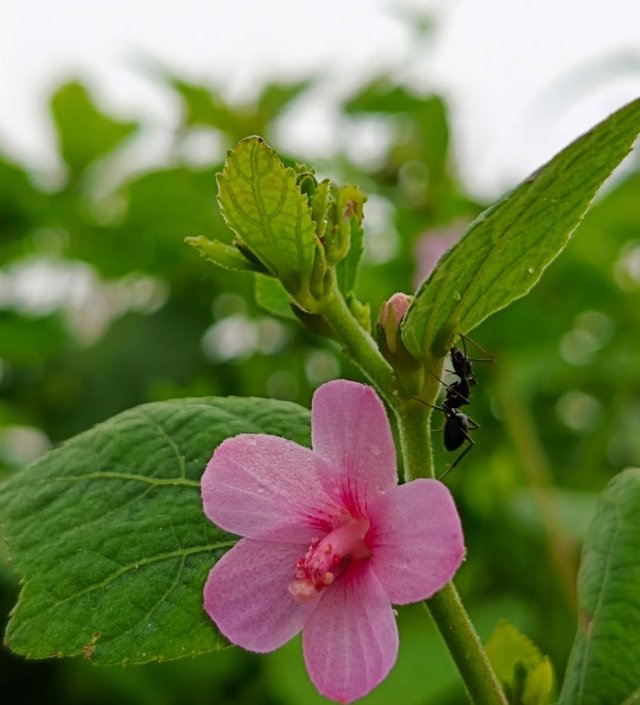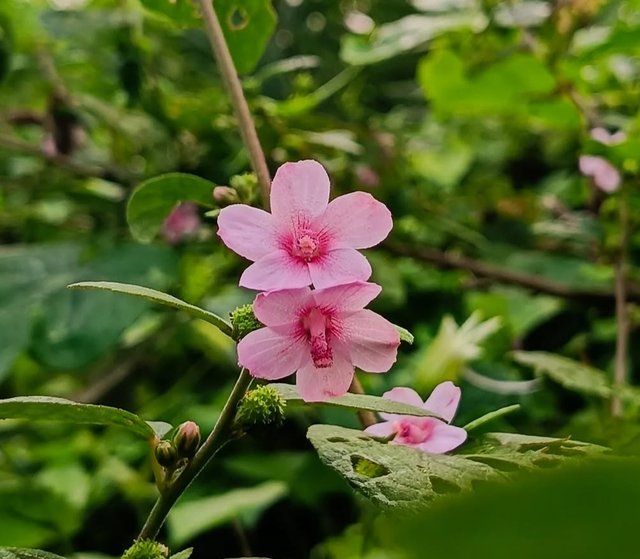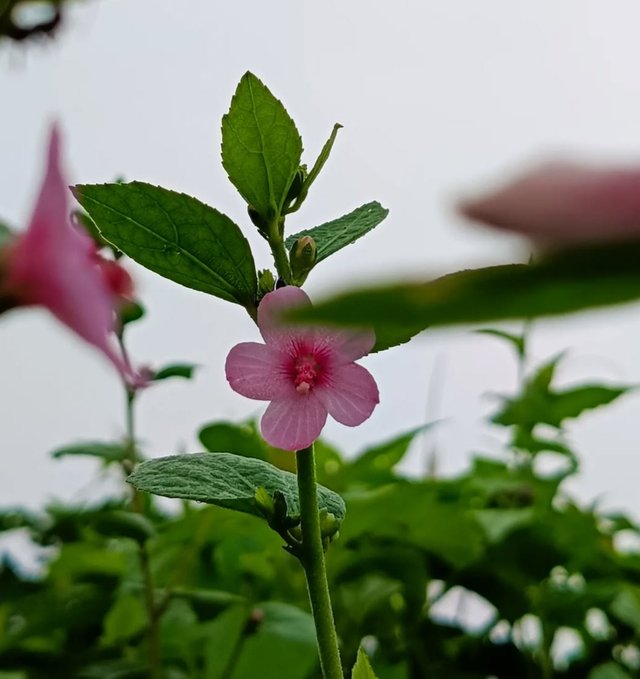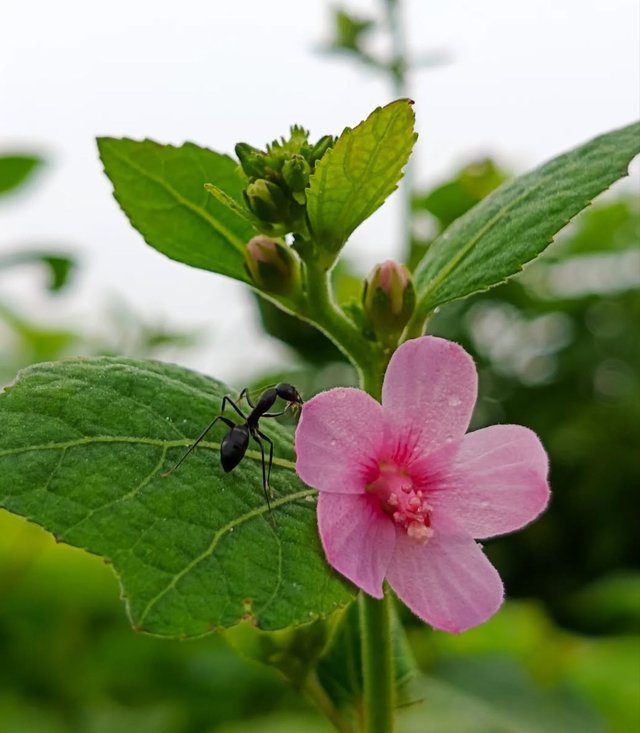Beautiful Urena Lobata Flower
Urena lobata: A Versatile Wildflower with Cultural and Ecological Value
Urena lobata, commonly known as Caesar weed, Congo jute, or pink burr, is a resilient flowering plant that belongs to the mallow family, Malvaceae. Native to tropical Asia and Africa, it has naturalized across many warm regions of the world, including Central and South America, the Caribbean, and parts of the United States. Though often regarded as a weed in cultivated fields and disturbed lands, Urena lobata has played important roles in traditional medicine, local crafts, and ecological systems for centuries.
Botanical Description
Urena lobata is a perennial or sometimes annual shrub that grows 1–2.5 meters tall. It features:
Leaves: Broadly ovate, coarsely toothed, and slightly hairy, resembling small maple leaves.
Flowers: Attractive five-petaled blooms, usually pink to lavender, about 1.5–2 cm across, which open in the morning and close by afternoon.
Fruit: Small, round, spiny burrs that easily cling to fur, clothing, or equipment—an adaptation that aids seed dispersal.
Roots: Fibrous and sturdy, making the plant drought-resistant and well adapted to poor soils.
Its hardy nature allows it to thrive along roadsides, in open fields, and in abandoned agricultural lands, often becoming a dominant species where disturbance has created open space.
Habitat and Distribution
This species flourishes in tropical and subtropical climates with abundant sunlight. Its ability to tolerate a wide range of soils, including sandy and clay-heavy types, contributes to its widespread distribution. Urena lobata’s burr-like seeds are transported by animals and humans, which explains its rapid spread across continents. In some regions, such as the southeastern United States, it is considered invasive because it competes with native plants for space and nutrients.
Traditional Uses
Fiber Production
In parts of Asia and Africa, Urena lobata has been cultivated for its fibrous bark, which can be processed into ropes, coarse textiles, or paper. In some rural areas, its fibers serve as a local substitute for jute, giving rise to the nickname “Congo jute.”
Medicinal Applications
Urena lobata has a long history in folk medicine. Various parts of the plant—leaves, roots, and flowers—are used to treat ailments such as:
Fever and inflammation
Diarrhea and dysentery
Coughs, colds, and respiratory infections
Skin problems, including boils and wounds
In Ayurveda and traditional Chinese medicine, decoctions made from Urena lobata are sometimes prescribed for urinary infections, rheumatism, and liver conditions. Scientific studies suggest the plant contains bioactive compounds like flavonoids and alkaloids, which may have anti-inflammatory, antibacterial, and antioxidant properties, though more modern research is needed to confirm these effects.




%20(9).jpeg)